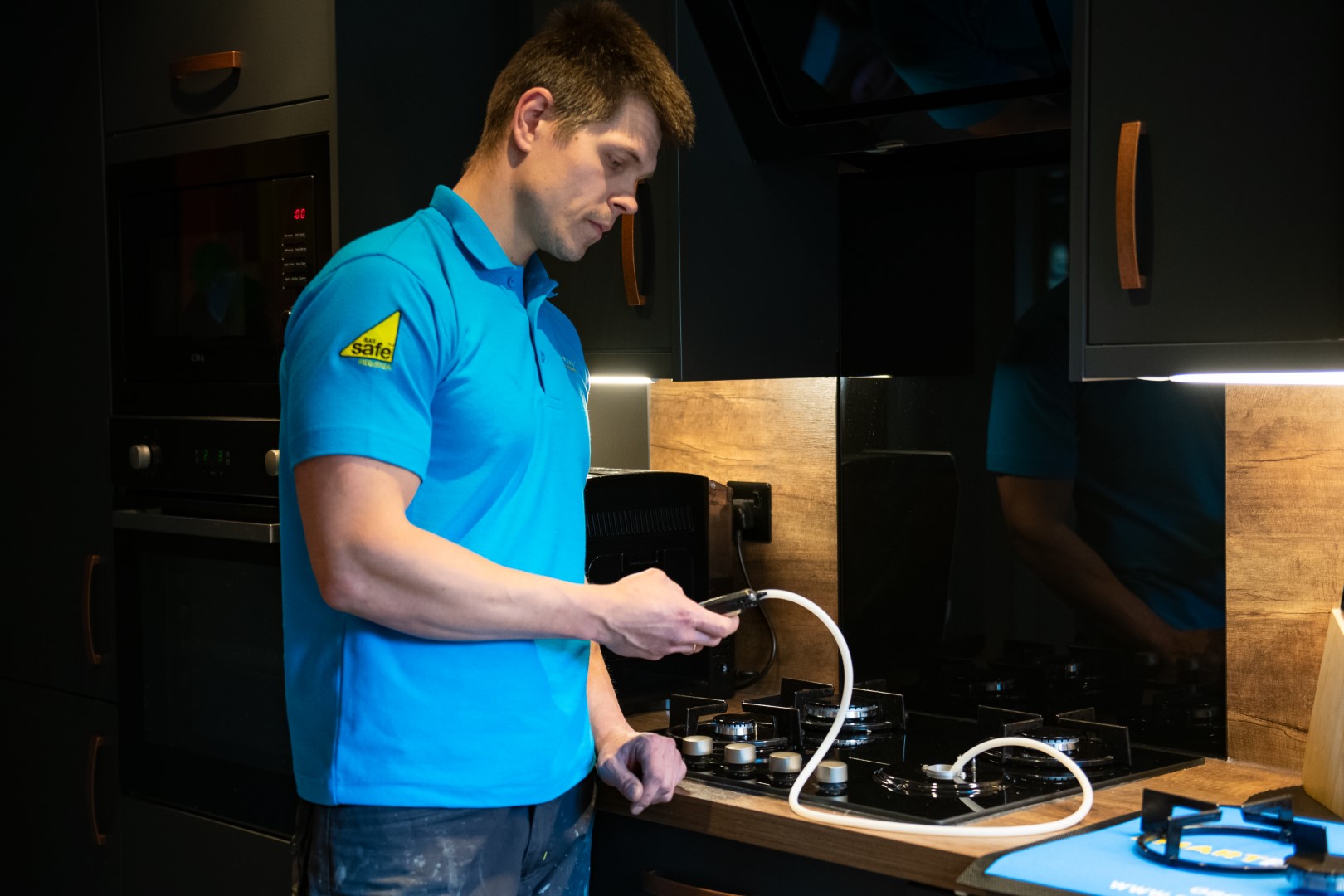
10 Tips to protect your home.
Gas Safety Week

10 Essential Tips to Protect Your Home: Gas Safety Week
Gas safety is a vital aspect of maintaining a secure and comfortable home. Gas Safety Week serves as a timely reminder to homeowners to prioritize gas safety and take necessary precautions to protect themselves and their loved ones. In this blog post, we will share ten essential tips to help you safeguard your home, promote gas safety, and ensure peace of mind throughout the year.
1. Schedule Annual Gas Appliance Servicing:
Regular servicing of gas appliances is crucial for their efficient and safe operation. Arrange an annual inspection and maintenance visit by a Gas Safe registered engineer to ensure that your gas appliances are in good working order. This includes gas boilers, heaters, cookers, and any other gas-powered devices in your home.
2. Install a Carbon Monoxide Alarm:
Carbon monoxide (CO) is a silent, odorless, and deadly gas. Install CO alarms on every level of your home and near sleeping areas. These alarms can quickly detect the presence of CO, alerting you to potential leaks or dangerous levels of the gas. Remember to test the alarms regularly and replace batteries as needed.
3. Know the Signs of Gas Leaks:
Familiarize yourself with the signs of a gas leak, including a distinctive “rotten egg” smell, hissing sounds near gas appliances, or an excessive amount of condensation on windows. If you suspect a gas leak, open windows and doors to ventilate the area, evacuate immediately, and contact the National Gas Emergency Helpline.
4. Be Mindful of DIY Gas Work:
Gas work should only be performed by qualified professionals. Attempting DIY repairs or installations involving gas appliances is not only illegal but also extremely dangerous. Always rely on Gas Safe registered engineers to handle any gas-related work in your home.
5. Keep Vents and Flues Clear:
Ensure that all vents and flues associated with gas appliances are clear of obstructions. Blocked vents can cause a dangerous buildup of carbon monoxide and other harmful gases. Regularly inspect vents, chimneys, and flues for debris or nests and have them cleared if necessary.
6. Educate Your Household:
Make sure that everyone in your household, including family members and tenants, is aware of gas safety practices. Educate them about the signs of gas leaks, the importance of proper ventilation, and what to do in case of emergencies. Encourage open communication about any concerns related to gas appliances.
7. Practice Kitchen Safety:
The kitchen is often the heart of the home, and gas cookers are a common feature. When using gas appliances in the kitchen, be cautious and mindful of safety. Never leave cooking unattended, turn off burners and ovens after use, and keep flammable materials away from open flames.
8. Store and Handle Gas Cylinders Properly:
If you use gas cylinders for outdoor cooking, barbecues, or heating, ensure they are stored in a well-ventilated area away from sources of ignition. Handle gas cylinders with care, following manufacturer instructions, and check for any signs of damage or leaks before use.
9. Check Gas Safe Credentials:
Whenever you hire a tradesperson to work on your gas appliances, verify their Gas Safe credentials. Gas Safe registered engineers have undergone the necessary training and qualifications to work safely with gas. Check their ID card and ensure it is up to date and specific to the type of work they are conducting.
10. Stay Informed:
Stay up to date with gas safety regulations, recommendations, and any advancements in gas safety practices. Regularly visit the Gas Safe Register website, follow Gas Safety Week campaigns, and keep an eye on official guidance from relevant authorities. This information will empower you to make informed decisions regarding gas safety in your home.
Easy booking backed with a 12-month guarantee
24/7* with no callout charges
Advice Hub
- What to do if you smell gas in your home?
- How to protect yourself from Carbon monoxide: The silent killer?
- Why should I service my boiler?
- How to reduce your Gas bills: Recent increase in energy prices?
- Common boiler fault codes & what they mean?
- What to do if a pipe bursts in your home?
- Going on holiday? Be sure to do these things to avoid a disaster
- 10 tips to protect your home: Gas Safety Week
- Common smart meter problems & How to fix them
- Gas safety regulations: Landlords & Tenants responsibilities
- How to keep water bills down
- Central Heating Powerflush: All you need to know
- 5 common reasons your boiler isn’t working
- Importance of servicing a gas fire
- Common plumbing problems
Conclusion
Gas safety is a responsibility that every homeowner should prioritize to protect themselves, their families, and their properties. By following these ten essential tips, you can create a safe environment and reduce the risk of gas-related accidents. Remember, professional servicing, installing CO alarms, and practicing caution around gas appliances are all key components of maintaining a gas-safe home. Embrace Gas Safety Week as an opportunity to reinforce these practices and promote a culture of gas safety in your household.









